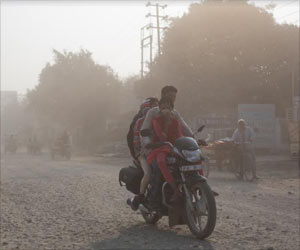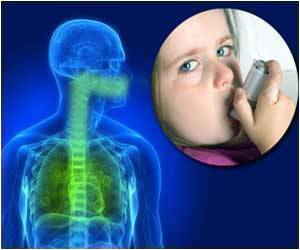December 5th is marked as the first international #SmogDay, to remember all of the people who have died prematurely, and avoidably, because of air pollution.

‘The air quality of Delhi and NCR deteriorated to "severe", with major pollutant PM2.5 or particles with diameter less than 2.5 micrometeres ranging over 10 times the safe value.’





"Today is the first international #SmogDay, a moment to remember all of the people who have died prematurely, and avoidably, because of air pollution. #BeatPollution," the US agency said in a tweet. Growing as an initiative to share the experiences of people living in London and New Delhi, the UNEP points out that each of us will breath about 250 million litres of air in lifetime "no matter where we live and how polluted the air is".
"On the worst day of the Battle of the Somme in 1916 during the First World War, 20,000 British soldiers are thought to have died. Yet, an estimated 18,000 people die every day worldwide as a result of air pollution," said a report under a UNEP campaign -- "clearing the air - a tale of two cities (Delhi and London)".
Meanwhile the air quality of Delhi and NCR deteriorated to "severe", with major pollutant PM2.5 or particles with diameter less than 2.5 micrometeres ranging over 10 times the safe value across 21 monitoring stations in the region at 4 p.m.
Of those 21 regions, five regions across Delhi-NCR saw an "emergency or severe plus" air quality, five other regions fell under "severe" category while the remaining 11 regions saw a "very poor" overall air quality.
Advertisement
"This is a global crisis, with 80 percent of urban dwellers breathing air that does not meet WHO health standards," said a statement from "C40 CITIES" -- an alliance of over 90 of the world's greatest cities calling urgent action on climate change and air pollution.
Advertisement
Meanwhile, London Mayor Sadiq Khan who is currently in Delhi as the Vice Chair on the C40 Cities Climate Leadership Group, on Tuesday announced "a new air quality partnership between London and Bengaluru".
"I'm proud today to announce London and Bengaluru will be leading a new air quality partnership. We hope to work with key cities across the world and in India, including with our good friends here in Delhi," said Khan, who had earlier this year called for a new Clean Air Act.
Aiming to control air pollution, Clean Air Act was passed in 1956 by the British parliament after its 1952 smog situation killed 9000 people.
In India following the 2016 post Diwali smog situation, the Union Environment Ministry notified Graded Response Action Plan (GRAP) under the Supreme Court appointed Environment Pollution Control Authority.
The GRAP applies preventive measures based on the severity of air quality and the "severe and emergency" level measures were for the first time applied this November after the Delhi-NCR faced an environment emergency situation mostly due to emissions from stubble burning in the neighbouring states.
Source-IANS









